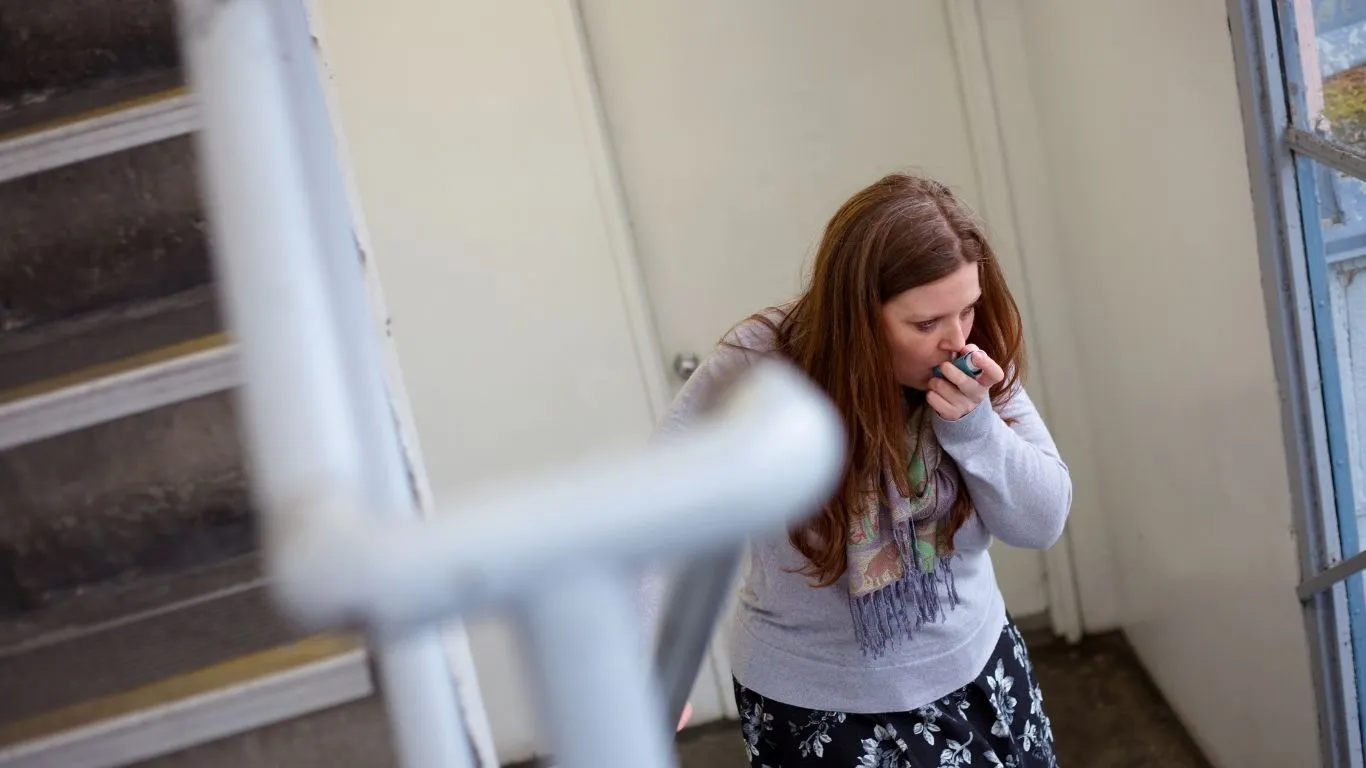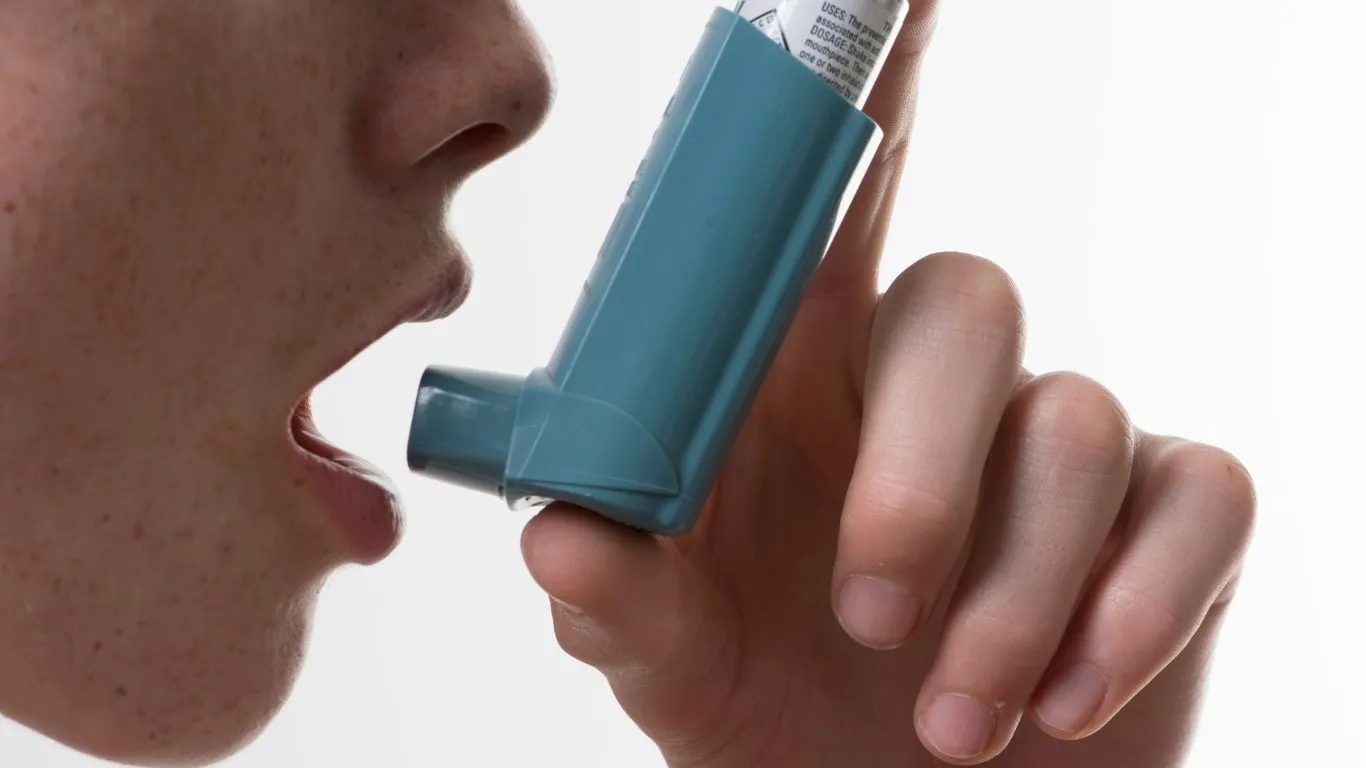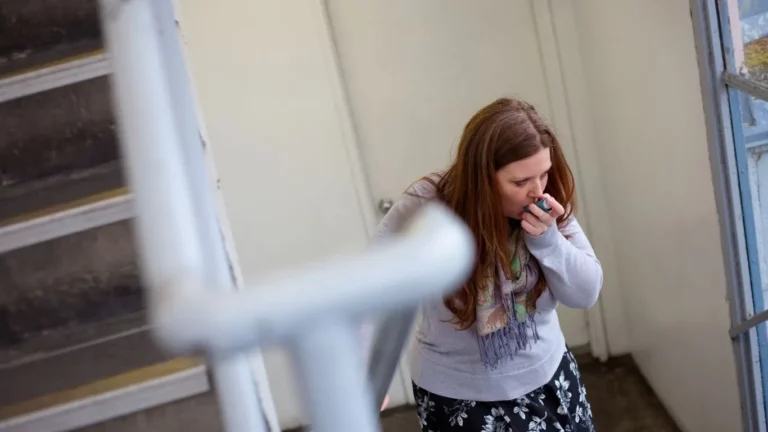Alarming Truth: Can Asthma Cause Fast Breathing During Sleep?
If you’ve ever wondered, can asthma cause fast breathing during sleep — you’re not alone. As a pulmonary nurse practitioner, I’ve seen so many patients (and worried parents) come in asking exactly that. It’s a super common concern, especially for people managing asthma in kids or even noticing changes in their own nighttime breathing. Waking up gasping or noticing someone breathing rapidly while asleep can be scary. But here’s the thing — there’s actually a lot going on behind the scenes with asthma and how it messes with our breathing rhythms, especially when we’re at rest. Let’s unpack this together.
Understanding Asthma and Its Nighttime Quirks

Asthma is more than just wheezing or coughing during the day. What a lot of people don’t realize is that asthma symptoms often get worse at night — a phenomenon we call nocturnal asthma. It’s like your airways decide to be extra dramatic the moment you try to relax. I’ve had patients tell me, “I’m fine all day, but as soon as I lay down, it feels like my chest tightens.” And I totally get it — I’ve seen this pattern over and over.
This nighttime flair-up happens due to a few sneaky reasons:
- Natural circadian changes — Your body’s cortisol levels drop at night, which means inflammation-fighting power is lower when you need it most.
- Reclining position — Lying down can shift mucus or trigger airway resistance, especially if you’ve got postnasal drip or GERD tagging along.
- Bedroom triggers — Dust mites, pet dander, or even a change in room temperature can cause a flare-up while you’re catching Zzz’s.
So… Can Asthma Cause Fast Breathing During Sleep?
Short answer: yes. And here’s why. When your airways become inflamed or narrowed — which is basically the core of what asthma is — your body has to work harder to pull in oxygen. This leads to tachypnea, which is just a fancy word for fast breathing. At night, this can show up as rapid, shallow breaths, restlessness, or even waking up in a bit of a panic.
I’ve had patients describe it like this: “It feels like I’m trying to breathe through a straw in my sleep.” That’s not just uncomfortable — it’s also your body’s way of compensating for reduced airflow. The brain senses a dip in oxygen or a rise in carbon dioxide and goes, “Okay, time to pick up the pace.” Boom — rapid breathing kicks in.
Recognizing the Signs: When Should You Worry?

Here’s where things get a little tricky. Occasional fast breathing during sleep isn’t always a red flag — even healthy folks can experience it during REM sleep or after a cold. But with asthma in the mix, you want to keep an eye out for patterns and other symptoms that ride along with it.
Red flags I often tell my patients to watch for:
- Fast breathing combined with audible wheezing
- Waking up gasping or coughing
- Increased use of rescue inhaler at night
- Fatigue during the day from poor sleep quality
- Signs of chest tightness or retractions (especially in kids)
In practice, I’ve had parents record their kids sleeping and bring the videos to appointments — super helpful, by the way. You can often catch the subtle flaring of nostrils, shallow breathing, or little pauses that might otherwise go unnoticed. As a mom myself, I know how terrifying it can be to see your child struggling to breathe at night. But having that info really helps us tailor the treatment.
Why Nighttime Asthma Symptoms Can Be Worse Than Daytime

Asthma doesn’t play fair — and nighttime is when it tends to hit hardest. That’s not just anecdotal; studies show that lung function (measured by peak expiratory flow rates) can drop by up to 50% during sleep in asthma patients. That’s a pretty big deal. And it helps explain why even mild asthma can feel intense at 2 a.m.
During the day, you’re up and moving, which helps keep airways a bit more open. You’re also more likely to notice symptoms earlier and respond faster. At night, you’re lying flat, unaware, and your body’s natural defenses are dialed down. It’s basically the perfect storm for breathing problems.
I’ve had more than a few patients who only realize they have asthma when these nighttime symptoms start. They think it’s anxiety or bad dreams until we do a proper assessment and find out their lungs are working overtime in silence.
How to Manage Fast Breathing During Sleep if You Have Asthma

When a patient asks me, “What should I do if I notice fast breathing at night?” — the first thing I tell them is: don’t panic, but don’t ignore it either. There are definitely steps you can take to stay ahead of these symptoms. One of the best things I’ve seen work for people is building a solid bedtime asthma routine. Think of it like brushing your teeth — only this time, it’s your lungs you’re looking out for.
Here’s what I often recommend:
- Use your controller inhaler as prescribed — especially if your provider has advised you to take it at night.
- Elevate your head while sleeping — a slight incline can reduce postnasal drip and ease airflow.
- Check your environment — make sure bedding is allergen-free and invest in a HEPA air purifier if needed.
- Stick to a consistent evening routine — avoid late-night exercise or anything that might trigger your symptoms before bed.
I’ve seen kids (and adults too) completely turn around their sleep quality with just these tweaks. It doesn’t have to be complicated, but it does need to be consistent.
Pro Tip: Keep a Nighttime Symptom Diary
This might sound old-school, but jotting down when symptoms happen, how long they last, and what you notice about your breathing can be incredibly helpful. I once had a patient who swore their asthma was random — but after two weeks of tracking, we realized their symptoms always flared after using a specific laundry detergent. Boom. Instant progress once they switched it out.
When Is Fast Breathing at Night a Sign to Call Your Provider?

Look — not every asthma flare-up requires a trip to the ER, but there are definitely moments when you shouldn’t just wait it out. I always tell my patients and their families to trust their gut. If something feels off, it probably is. That said, there are some clear indicators when medical attention is necessary.
Call your provider or head to urgent care if you notice:
- Fast breathing that doesn’t improve with a rescue inhaler
- Breathing so rapid or shallow that the person can’t speak full sentences
- Visible retractions (skin pulling in around ribs or neck)
- Lips or fingertips turning blue — that’s a major red flag
- Recurring nighttime symptoms that are disrupting sleep several times a week
As a clinician, I’d rather someone call me over something that ends up being mild than wait too long when things are spiraling. Especially with kids — symptoms can escalate quickly.
What About Sleep Apnea or Other Conditions?
Something that comes up surprisingly often is whether asthma can be confused with sleep apnea — or vice versa. And the answer is, yes. I’ve had a few adult patients who had fast breathing and nighttime awakenings, and we initially thought it was poorly controlled asthma. Turns out, they also had undiagnosed sleep apnea. The overlap can be confusing — both can cause disrupted sleep, daytime fatigue, and even gasping at night.
If you’re following your asthma treatment plan to the letter and still struggling with symptoms, don’t hesitate to ask your provider about a sleep study. Ruling out overlapping conditions is a smart move, especially if fast breathing during sleep persists.
Tips from the Field: What I’ve Learned Over the Years

After years of working with asthma patients, I’ve picked up a few nuggets of wisdom that go beyond the textbook — stuff you only really learn on the job or from living through it with your patients.
- Trust your pattern recognition — if you’re waking up at 2 a.m. every other night wheezing or breathing fast, that’s not random. It’s your body talking.
- Don’t ignore mild symptoms — what starts as “just fast breathing” can snowball into a full-blown asthma exacerbation if left unchecked.
- Involve the whole household — if your child has asthma, siblings and caregivers should know the signs of trouble and how to help.
- Use tech to your advantage — asthma apps, smart inhalers, and even simple alarms to remind you of meds can really change the game.
One of my patients even set a daily bedtime alarm labeled “Asthma Armor Time” to remember their inhaler routine. Love that energy.
Ultimately, the goal isn’t to eliminate every symptom overnight — it’s to understand your asthma, recognize its patterns, and respond with confidence. Fast breathing during sleep is one of those signs that’s easy to brush off, but when you dig into it, it can tell you a whole lot about how your asthma’s behaving.
Creating an Asthma-Friendly Sleep Routine

So by now, we’ve established that yes, asthma can cause fast breathing during sleep, and it’s definitely something worth paying attention to. But let’s be real — managing asthma doesn’t mean you need to turn your bedroom into a sterile lab. Small, intentional changes can make a big impact.
Here are a few nighttime tips I share with my own patients (and use myself at home):
- Keep your bedroom cool and dry — humidity can make asthma worse, especially in older homes with poor ventilation. A dehumidifier is a game changer.
- Wash bedding weekly in hot water — it kills dust mites, which are sneaky triggers for a lot of my patients, especially kids.
- Avoid strong fragrances or candles at night — these can irritate airways even if they don’t bother you during the day.
- Try saline nasal rinses before bed if you also deal with allergies or sinus issues — it helps open up airways naturally.
I once had a teen patient who swore their asthma got worse at night because of their cat. Turns out, Mr. Fluffball was sleeping on their pillow. We compromised — cat stays out of the bedroom, and their sleep (and breathing) drastically improved. Sometimes it really is that simple.
What About Natural Remedies or Lifestyle Changes?
I’m all about evidence-based care, but I also believe in meeting people where they’re at. If you’re exploring natural add-ons to your asthma routine, here’s what I typically tell patients:
- Breathing exercises like Buteyko or pursed-lip breathing — great for helping with control during episodes of fast breathing
- Mindfulness or bedtime yoga — not a cure, but can reduce stress-induced symptoms (yes, stress is a sneaky trigger!)
- Anti-inflammatory foods — omega-3s, turmeric, and leafy greens are all good to include in your overall plan
That said, if something claims to “cure asthma” — major red flag. I’ve had patients try essential oil diffusers, herbal mixes, or detox teas, and unfortunately, some of those made their breathing worse. Always run it by your provider first.
Kids and Asthma at Night: What Parents Should Know

As a mom and a nurse practitioner, I have a soft spot for the parents navigating childhood asthma. Nighttime can be especially stressful when your little one is breathing fast or coughing in their sleep. And honestly? You know your child better than anyone — if you feel something’s not right, speak up.
Here are a few things I tell worried parents in clinic:
- Track symptoms, not just asthma attacks — fast breathing, restless sleep, and dark circles under the eyes can all be subtle signs that control is slipping.
- Stick to the asthma action plan — have a printed copy in the bedroom or on the fridge. Everyone who watches your child should know what steps to take and when.
- Watch for behavioral changes — crankiness, poor focus, or fatigue might be signs that sleep quality is suffering due to nighttime symptoms.
I had one parent tell me their child was waking up soaked in sweat from working so hard to breathe at night. That detail helped us tweak their meds, and within a week, things were 100% better. Sometimes those “small” details matter most.
References
- Asthma and Allergy Foundation of America (AAFA)
- National Heart, Lung, and Blood Institute (NHLBI)
- Centers for Disease Control and Prevention (CDC)
- Mayo Clinic
- American Lung Association
Disclaimer
This article is for informational purposes only and reflects my personal experiences as a licensed pulmonary nurse practitioner. It is not a substitute for professional medical advice, diagnosis, or treatment. Always consult with your healthcare provider before making changes to your asthma care plan or starting new treatments. If you are experiencing symptoms such as severe shortness of breath, bluish lips, or chest pain, seek emergency care immediately.

Bianca Nala is a compassionate Nurse Practitioner with a strong background in primary and respiratory care. As a health writer for Healthusias.com, she combines her clinical expertise with a talent for clear, relatable storytelling to help readers better understand their health. Bianca focuses on topics like asthma, COPD, chronic cough, and overall lung health, aiming to simplify complex medical topics without losing accuracy. Whether she’s treating patients or writing articles, Bianca is driven by a single goal: making quality healthcare knowledge accessible to everyone.






